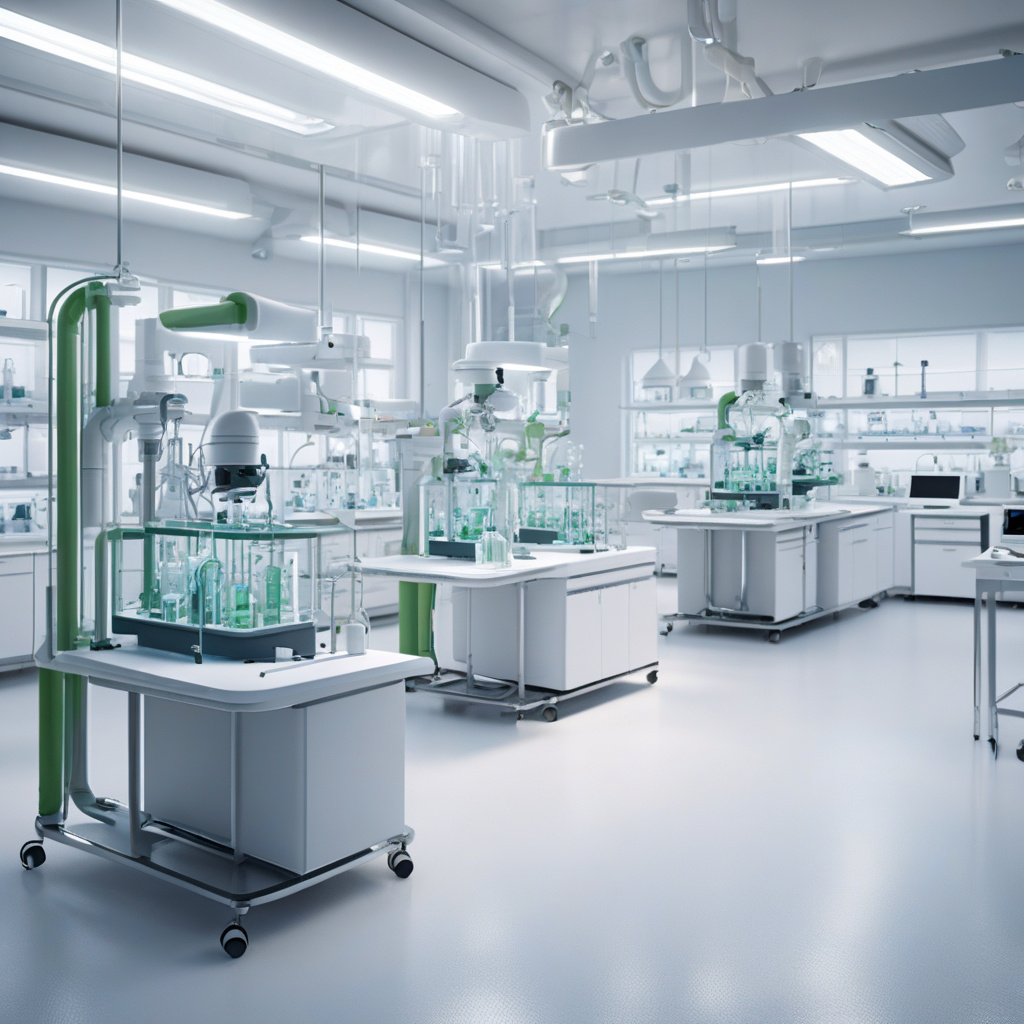At Modern Meadow, Biofabricating a Sustainable Leather Alternative
In recent years, the fashion industry has faced increasing scrutiny over its environmental impact, particularly in its reliance on traditional leather production. With sustainability regulations tightening and deadlines for manufacturing reforms approaching, companies are under pressure to rethink their sourcing strategies. One firm leading the charge towards a more sustainable future is Modern Meadow, a bio-design company that is pioneering the development of biofabricated leather alternatives. In a recent interview, BoF had the opportunity to speak with Modern Meadow’s chief executive officer, David Williamson, to explore how the company’s innovative biofabrication technologies are set to reshape the leather industry.
Modern Meadow’s approach is built on the concept of biofabrication, which involves using living cells and biological processes to create materials. Unlike traditional leather, which often relies on resource-intensive animal farming and toxic tanning processes, Modern Meadow harnesses the power of nature to produce a sustainable leather alternative that is not only environmentally friendly but also versatile and high-quality.
“Consumers are increasingly aware of the environmental impact of their choices,” Williamson states. “They are looking for products that align with their values, and that includes a strong demand for sustainable materials.” This shift in consumer preference has prompted Modern Meadow to optimize its technologies for responsible sourcing, making it a frontrunner in the quest for sustainable alternatives.
One of the key advantages of Modern Meadow’s biofabricated leather is its ability to reduce the carbon footprint associated with traditional leather production. According to Williamson, the process of creating biofabricated leather requires significantly fewer resources, including water and land. In fact, it is estimated that biofabrication can reduce the environmental impact of leather production by up to 90%. This dramatic reduction not only helps to mitigate climate change but also conserves precious natural resources.
The biofabrication process begins with the cultivation of yeast cells that are genetically engineered to produce collagen, the primary protein found in animal skin. By feeding these cells nutrients, Modern Meadow can grow a material that mimics the properties of animal leather. “The result is a product that can be used in a variety of applications, from fashion to upholstery, without the ethical concerns associated with animal-derived materials,” Williamson explains.
Moreover, the flexibility of biofabrication allows for customization in terms of texture, appearance, and functionality. This adaptability is particularly appealing to brands looking to differentiate themselves in a competitive market. For instance, Modern Meadow has collaborated with various fashion labels to create bespoke leather alternatives that meet specific design requirements, showcasing the potential for innovation in sustainable fashion.
In addition to its environmental benefits, Modern Meadow’s biofabricated leather also addresses the ethical concerns surrounding animal welfare. The rise of the vegan and cruelty-free movement has led many consumers to seek out alternatives to animal-based products. By providing a high-quality leather substitute that does not involve animal farming, Modern Meadow positions itself as a solution to this growing demand.
However, challenges remain in the wider adoption of biofabricated materials. Williamson acknowledges that educating consumers and industry stakeholders about the benefits of these alternatives is crucial. “We need to raise awareness about the environmental impact of traditional leather and the advantages of biofabrication,” he states. “As more people understand the technology and its benefits, we can drive the shift towards sustainable practices in the industry.”
Moreover, as the regulatory landscape continues to evolve, brands will need to adapt their sourcing strategies to comply with new sustainability standards. Modern Meadow’s innovations position it as a key player in this transition, offering a viable solution for companies looking to meet regulatory requirements while appealing to a growing base of environmentally conscious consumers.
As the demand for sustainable materials rises, Modern Meadow is poised to make a significant impact on the leather industry. With its commitment to biofabrication and responsible sourcing, the company is not only addressing the pressing concerns of environmental degradation and animal welfare but also paving the way for a more sustainable future in fashion.
In conclusion, Modern Meadow represents a transformative shift in the leather industry, showcasing how technology can be harnessed to create innovative solutions that align with the values of today’s consumers. As sustainability continues to be a driving force in retail and fashion, the adoption of biofabricated materials may very well become a standard rather than an exception.
sustainablefashion, biofabrication, ecofriendly, leatheralternative, ModernMeadow
